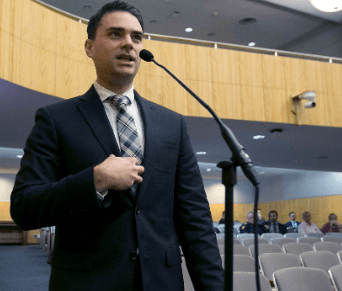Ben Shapiro on Tracy Chapman’s music raises compelling questions about the intersection of personal narrative and political discourse in artistic expression. His critique suggests a fundamental tension between the emotive depth of her storytelling and the broader societal messages she conveys. This analysis not only reflects a divide among listeners but also prompts a deeper inquiry into the role of authenticity in art. As the conversation unfolds, one must consider whether Chapman’s significance is diminished by such scrutiny or if it merely enhances her cultural relevance.
Read also: Apple to Win Trademarks Augmentedreality Software
Shapiro’s Critique of Chapman’s Work
Ben Shapiro’s critique of Tracy Chapman’s work often highlights a perceived incongruity between her emotive storytelling and the political implications of her lyrics.
His lyrical analysis suggests that while Chapman’s musical influences draw from folk traditions, her messages can appear contradictory, challenging listeners’ freedoms.
This tension raises questions about authenticity and the role of art in conveying political narratives versus personal experience.
Cultural Impact of Ben Shapiro on Tracy Chapman
Tracy Chapman’s influence extends far beyond her emotive storytelling and politically charged lyrics, marking her as a pivotal figure in the landscape of contemporary music.
Her work illustrates the profound musical evolution of the late 20th century, while simultaneously offering poignant societal reflections.
Chapman’s artistry resonates with audiences seeking authenticity, challenging norms and encouraging discussions around identity, justice, and the human experience.

Political Commentary in Music
Political commentary in music has long served as a powerful vehicle for artists to express dissent, advocate for change, and engage listeners in critical discourse.
Through lyrical analysis, musicians craft poignant social commentary that resonates with audiences, challenging societal norms and expectations.
This art form transcends mere entertainment, igniting conversations about justice, equality, and freedom, ultimately empowering individuals to reflect and act.
The Debate Among Fans and Critics
Amid the fervent discussions surrounding Tracy Chapman’s music, a palpable divide emerges between ardent fans and staunch critics.
Fan reactions often celebrate her artistic integrity, viewing her work as a profound exploration of societal issues.
Conversely, critics argue that her approach can lack mainstream appeal.
This ongoing debate underscores the tension between commercial success and the uncompromising pursuit of genuine expression in the music industry.
Read also: Barclays Reaches $1.1 Bln Deal to Sell U.S. Receivables
Conclusion
The discourse surrounding ‘s artistry reveals a complex interplay of emotion and ideology, where storytelling and social critique converge. Critics, like Ben Shapiro, challenge the authenticity of her narrative, while fans celebrate her cultural resonance. This juxtaposition highlights a broader examination of music’s role in society—provoking questions of artistic integrity, political engagement, and mainstream appeal. In this evolving dialogue, the tension between personal expression and collective consciousness remains a defining characteristic of contemporary musical discourse.

